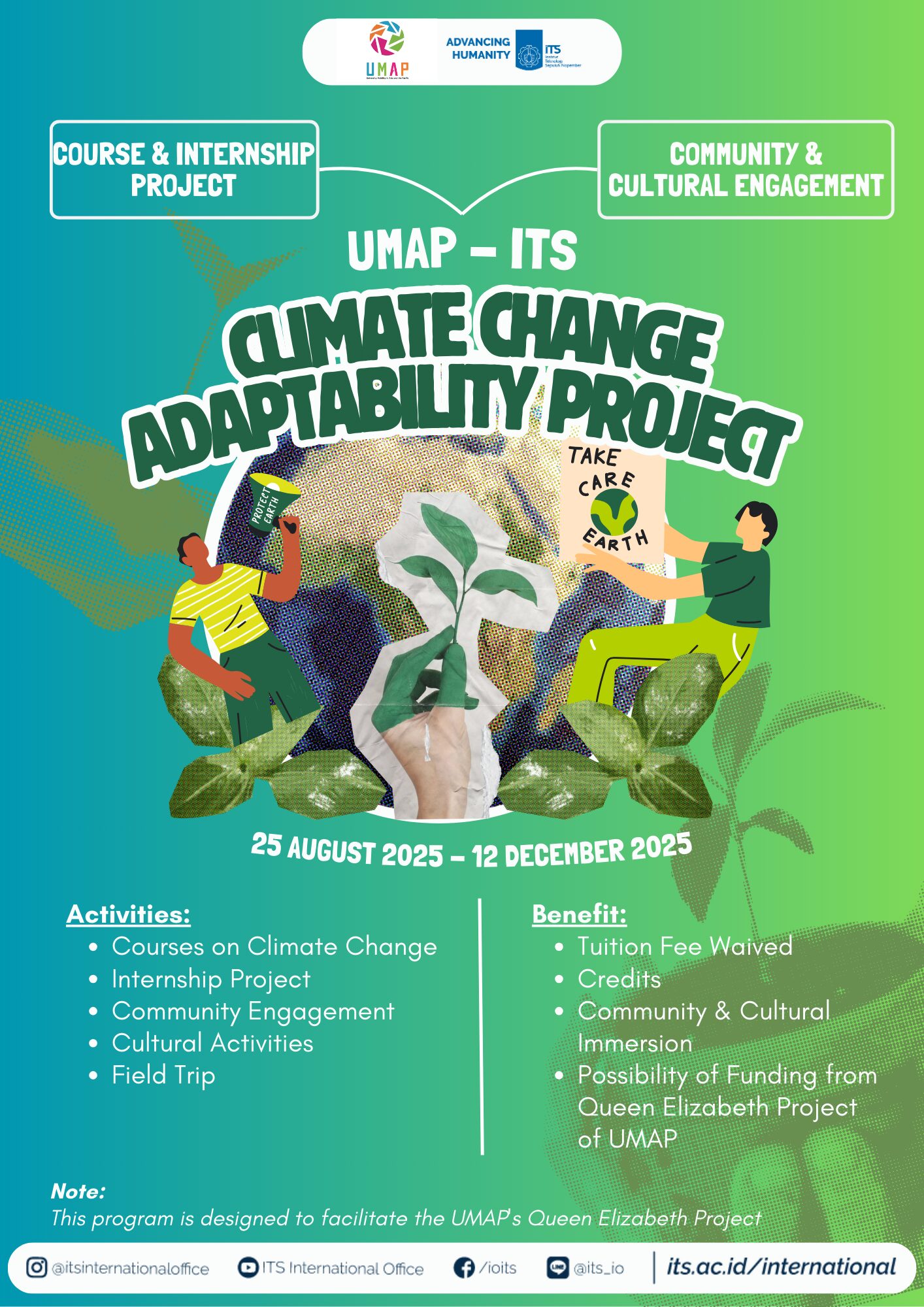The program consists of 3 elements, i.e., class-based courses, community service project on climate change, and final report.
Courses on Climate Change | Mandatory
Participants are required to take at minimum 2 general courses related to climate change in Department of Environmental Engineering and/or Department of Urban and Regional Planning at ITS.
Courses:
Department of Environmental Engineering
- Climate Change : 2 SKS , syllabus is here (page 86)
- Green Technology : 2 SKS, syllabus is here (page 85)
Department of Urban and Regional Planning
- Natural Resources and Environmental System : 3 SKS , syllabus is here
- Sustainable Development : 3 SKS , syllabus is here
Note:
- The courses are intended for bachelor’s degree students and are expected to be appropriate for all international students from a variety of backgrounds.
- 1 SKS is equivalent to 38 hours student working load and 13 hours of teaching.
Internship Project on Climate Change | Mandatory
Project Name: Disaster Resilient School
Duration: August – December 2025
Overview:
This project is supervised by the ITS Research Center for Disaster Mitigation and Climate Change. Students will engage in a hands-on learning experience that integrates VR technology to assess and enhance disaster preparedness in schools located in vulnerable areas. As climate change intensifies the frequency and severity of natural disasters, proactive disaster mitigation becomes a critical component of climate action adaptability. This initiative provides participants with a comprehensive understanding of disaster risks, response strategies, and resilience-building efforts, empowering them to contribute to sustainable and adaptive solutions for at-risk communities. By merging technology, education, and global collaboration, the project enables international students to contribute to local society by preparing for potential disasters, strengthening community resilience, and fostering a culture of preparedness.
Community Engagement Project | Co-curricular Activities
- Urban Farming, tree planting, and trash sorting – In the SDGs and Eco Campus Unit, students will contribute to campus sustainability efforts by engaging in greening initiatives, reforestation, and enhancing food security through urban farming and tree planting. In addition to that, students take part in the effort of enhancing recycling efficiency through trash shorting in TasTe, and making it more accessible for everyone.
- Mangrove planting – Sharpening the awareness of the crucial role in environmental sustainability, disaster mitigation, and community livelihood in the coastal area, students take part in mangrove planting.
- EduWorkshops – To make disaster education more engaging, accessible, and effective to prepare communities for real-life-emergencies, students take part in EduWorkshop related to climate change for junior and high school students in Surabaya.
Final Report
At the end of the internship and community engagement project, students are required to submit a final report reflecting on their experiences and insights into climate change action in Indonesia. This report serves as an assessment tool, evaluating their active participation, critical understanding, and contributions throughout the project. It also provides an opportunity for students to articulate the impact of their engagement and propose innovative solutions for enhancing community resilience.

